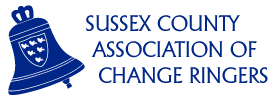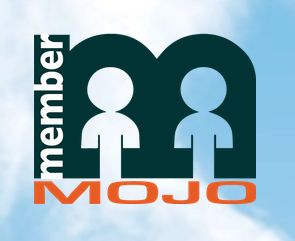Financial Policy
- Details
- Published: Wednesday, 18 October 2017 13:00
Downloadable version: Financial Policy - Version 2.0: Approved: 18 October 2017
Sussex County Association of Change Ringers (SCACR) is a Registered Charity, number 268588.
Trustees
SCACR has 3 Trustees, elected in rotation at the AGM (see Rules). The Trustees have a general duty to act in the best interests of SCACR as a whole and are responsible for:
- delivering public benefits
- safeguarding the assets of the charity, ensuring that it is solvent
- ensuring that assets are properly used to achieve its aims and that its funds are spent effectively
- preventing fraud and avoiding mistakes and other irregularities by ensuring that appropriate financial controls are in place
- ensuring that timely and accurate financial records are kept in accordance with the governing document and relevant legislation (e.g. Charities Acts)
- signing the annual accounts that give a true and fair view of the financial activities of the Association during the year
- ensuring that the Trustees Annual Report (which describes the achievements of the charity in the reporting period), accounts and annual return are filed on time with the Charity Commission.
Finance Committee
The Trustees are assisted in their financial management of the charity by the Finance Committee, which comprises the following elected Officers in addition to the Trustees:
- Master
- General Secretary
- Treasurer
- Bell Restoration Fund (BRF) Secretary
- District Secretary of each of the 4 Districts
The Finance Committee meets as often as required, but a minimum of once per year. The quorum shall be six of the above, to include at least two Trustees. The Finance Committee has the power to co-opt additional members but co-opted members do not have the power of vote. If a nominated Officer is unable to attend, a representative may attend the Committee in their place as an Observer, but will not have the power of vote. The nominated Officer may give a proxy vote to the Chair of the meeting if absent.
The role of the Finance Committee is:
- To advise and assist the Trustees in the performance of their responsibilities, as above
- To approve the Accounts for the financial year
- To select the bank and deposit accounts used by the Association following research of options by the Treasurer
- To select appropriate insurance policies
Treasurer
The Finance Committee delegates the day-to-day running of the Association’s financial affairs to the Treasurer. The Treasurer is elected annually at the AGM, and retires annually, but remains eligible for re-election. The role of the Treasurer is:
- Ensuring the AGM appoints an Independent Examiner annually.
- Production of interim and final Accounts for each year.
- Obtaining a report from the appointed Independent Examiner.
- Timely completion of the annual Charity Commission return
- Reconciliation of the accounting books with the Association bank account(s)
- Retention of appropriate financial records and supporting documentation such as invoices
- Arranging payments, and gaining the appropriate authorisation
- Researching and recommending appropriate investment accounts to the Trustees
- Reclaiming Gift Aid on behalf of the Association
Funds
The Association holds general funds (also known as unrestricted funds) and restricted funds. These are accounted for separately.
Unrestricted Funds
These represent the funds of the Association that are not subject to any restrictions regarding their use and are available for application on the general purposes of the Association.
The principle source of unrestricted income is annual subscriptions from members. Other sources are the sale of publications, clothing and badges, peal fees, training course fees and ticket sales for events. Donations are made to the restricted funds only.
The main items of expenditure relate to newsletters, production of the Annual Report, insurance, administration expenses, library costs, the website and newsletters and training courses.
Restricted Funds:
These are funds designated for a particular purpose by the Association. The restricted funds currently comprise:
- Sussex Churches Bell Restoration Fund (the restoration of church bells in Sussex)
- Sussex Young Ringers Fund (The Reg Johnson and Harold Wood Memorial Fund) (to encourage young people to participate in change ringing in Sussex)
The principle source of income is donations and legacies.
The main items of expenditure are grants.
All grants from the Sussex Churches Bell Restoration Fund must be considered and approved by the BRF Committee, with the exception of simulator grant requests, which must first be considered by the Training & Recruitment Committee, and if recommended by this Committee, must then be approved by the Trustees.
All grants from the Sussex Young Ringers Fund (The Reg Johnson and Harold Wood Memorial Fund) must be considered and recommended by the Training & Recruitment Committee, and must then be approved by a minimum of two of the Trustees.
The Accounts
The financial year runs from 1st January to 31st December.
Accounts will be drawn up after each financial year within three months of the end of the year). The accounts will be inspected by an Independent Examiner.
The draft Accounts and Independent Examiner’s report will be examined by the Finance Committee before being signed by the Trustees. The approved Accounts will be presented to the next General Committee, and the next Annual General Meeting (AGM).
Each year, the AGM will appoint an appropriately qualified Independent Examiner to review the Accounts prior to their presentation at the following year’s AGM.
All accounting records will be held for a minimum of six years.
Interim Financial Reporting
During the Financial Year, financial reports will be prepared for each meeting of the General Committee, and the Finance Committee. A report on the current financial position of the relevant Restricted Fund will be drawn up by the Treasurer prior to any meeting of the BRF Committee or the Training & Recruitment Committee.
Fixed Asset Register
The Association will set up and maintain a Fixed Asset Register stating (for each asset) its:
- Date of acquisition
- The original cost
- Any serial numbers of the item
- The normal location of the asset
- The latest valuation
- The date of the latest valuation.
It will maintain a proper record of any stocks of goods for sale, e.g. books, badges, clothing.
Fixed Assets will be inspected annually by a Trustee to ensure they exist, remain in good condition and are being put to appropriate use.
The disposal or scrapping of a Fixed Asset must be authorised by the Trustees, and recorded in the Fixed Asset register and accounting records.
The adequacy of insurance cover must be reviewed annually.
Banking & Investment Policy
Day-to-day Association funds will be held in a current bank account. The choice of bank account provider will be approved by the Trustees. On-line transactions will require authorisation by 2 of the approved signatories.
Funds not immediately required for day-to-day running costs or imminent grants will be transferred from the current account to a low risk interest-bearing deposit account or similar investment. The choice of investment account provider(s) will be approved by the Trustees. The Treasurer will be responsible for monitoring account balances and transferring monies between the current and deposit accounts.
A small petty cash float of no more than £50 may be held by one nominated individual in each District to facilitate monthly District events (e.g. for tower donations). All income and expenditure against the cash float must be fully itemised and reported to the Treasurer quarterly, or on request. All cash in excess of the £50 float must be paid in to the SCACR current account.
Loans
It is the policy of the Trustees and General Committee that the Association will not take out a loan for any purpose, nor make any loans.
Communication
A copy of this policy and procedures will be given to all General Committee members on their appointment, and will be made available to all members to view via the SCACR website.
Review & Revision
The financial policy and procedures will be reviewed annually by the Finance Committee and revised as necessary
SCACR Financial Management and Control Procedures
Banking
SCACR banks with the Charities Aid Foundation (CAF Bank Ltd). The Current Account is a CAFCash Account held in the name of Sussex County Association of Change Ringers.
The Association also has a 45-day notice Deposit Account with Cambridge & Counties Bank held in the name of Sussex County Association of Change Ringers.
SCACR requires each bank to provide statements every month and these will be reconciled with the draft accounts at the end of every month by the Treasurer.
No bank account will ever be opened in the name of an individual or individuals.
The Association will not use any other bank account, bank or financial institution or use overdraft facilities or invest speculatively unless authorised, approved and minuted by the Finance Committee.
The bank mandate (the list of people who approve expenditure on the organisation’s behalf) for both the Current and the Deposit Accounts nominates five authorised signatories. These are the elected individuals in the following posts:
- Each of the three Trustees
- Treasurer
- General Secretary
Any change to the bank mandate signatories must be approved and minuted by the General Committee.
The full use of electronic banking facilities is permitted on both accounts.
Income
All cheques and cash received must be banked promptly, no more than 30 days after receipt. The Treasurer and one nominated individual in each District will hold paying in books for the Current Account.
Funds received should normally be banked gross without deduction of costs or expenses.
Two unrelated people should always be involved in counting cash receipts.
The Association will accept electronic payments and donations by bank transfer.
Payments
All invoices must be passed to the Treasurer for approval, and will be paid within 30 days of receipt by the Treasurer either by cheque or electronic transfer.
All cheques must be signed by two of the five authorised signatories. All Internet bank transfers must be authorised by two of the five authorised signatories. Both signatories are responsible for examining the cheque or transfer for accuracy and completeness, and should see the supporting paperwork before authorising the payment.
The Treasurer will be responsible for holding the cheque-book (including unused and partly used cheque-books). Blank cheques will never be signed.
All payments should be supported by an original invoice or receipt. The invoice/receipt will be annotated with the cheque number, date drawn, amount and the names of the signatories.
If required for an event, the event organiser may apply to the Treasurer for a float to cover any expenditure necessary in advance. After an event, a full account of the income and expenditure (supported by invoices or receipts) must be provided to the Treasurer, and any float fully accounted for.
‘Hole in the wall’ cash cards, debit cards and credit cards will not be used, and any issued by the bank unsolicited will be immediately cut in half.
The Association will not make payments by direct debit or standing order.
Payments in cash should normally not be made.
Expenses
SCACR will, if asked, reimburse expenditure paid for personally by elected Officers, providing:
- The expenditure claimed is in line with the SCACR Expenses Policy
- Expenditure is evidenced wherever possible by original receipts.
- Reimbursement will be by cheque or BACS electronic transfer
Fundraising & Sponsored Events
For the avoidance of doubt, the monthly ringing practices and similar social ringing events are not considered to be fundraising events.
Separate records should be maintained for each event in sufficient detail to ensure that gross income and any costs incurred are clearly identified. Where there is ticket income:
- Tickets should be pre-numbered
- A record is kept of all persons issued with tickets to sell, and the ticket numbers allocated to each person
- A record is kept of which tickets have been sold
- All money from tickets and any unsold tickets are collected
- A reconciliation is made of receipts against tickets sold
Gift Aid
The Treasurer will maintain the record of Gift Aid forms received, and is responsible for the timely reclaim of Gift Aid on fundraising.
The Treasurer will ensure that current HMRC Gift Aid advice/declaration is given to all donors.
Legacies
The Treasurer should maintain a record of all legacies notified to the Association, including any terms or restrictions in the use of the legacy. Correspondence files should be maintained, and the Treasurer should check regularly on the progress of the collection of outstanding legacies.
Other undertakings
SCACR does not accept liability for any financial commitment unless properly authorised by the Trustees.
All grant applications undertaken on behalf of SCACR will be done in the name of the organisation with prior approval of the Finance Committee.
Confidentiality
All transactions involving the payment of expenses, personal deposits and other donations should be dealt with on a ‘need to know’ basis. This does not stop any member having access, by arrangement, to the general accounts and balance sheets.
Conflict of Interest
All conflicts of interest must be declared as soon as they are known. Where a transaction or other business is proceeding after an interest has been declared, the outcome must be approved by the relevant Committee or Team, who are to seek the advice of the Trustees if necessary.
Version 2.0: Approved: 18 October 2017







